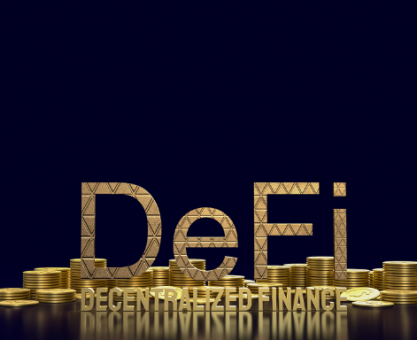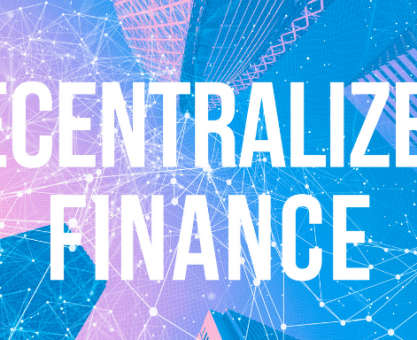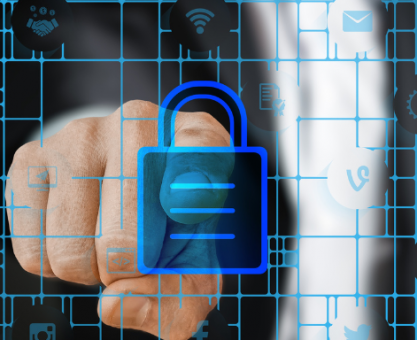Executive Summary
-
Decentralized Finance (DeFi) is revolutionizing traditional banking by offering financial services directly via blockchain technology.
-
The rapid growth of DeFi platforms has introduced significant cybersecurity challenges that need addressing.
-
Investors and developers must understand the risks and implement robust security measures to protect against vulnerabilities.
-
This article explores the benefits, risks, and strategic insights into navigating the DeFi landscape securely.
Introduction
Decentralized Finance, or DeFi, is the buzzword transforming the world of finance by eliminating intermediaries like banks and brokers. While DeFi promises greater financial inclusion and innovation, it also presents cybersecurity challenges that could undermine its potential. Understanding these challenges is crucial for investors, developers, and users who wish to engage with DeFi safely and successfully. This article delves into the intricacies of DeFi and its cybersecurity hurdles, providing insights into safeguarding your digital assets.
Definitions / Context
Decentralized Finance (DeFi) refers to a blockchain-based form of finance that does not rely on central financial intermediaries such as brokerages, exchanges, or banks, and instead utilizes smart contracts on blockchains, the most common being Ethereum.
Smart Contracts are self-executing contracts with the terms of the agreement directly written into code, facilitating, verifying, and enforcing the negotiation or performance of a contract.
Benefits / Pros
-
Enhanced Accessibility
DeFi platforms are accessible to anyone with an internet connection, removing barriers presented by traditional financial institutions. -
Innovation and Flexibility
Users can engage in activities like lending, borrowing, and trading without centralized control, promoting rapid innovation. -
Cost Efficiency
By eliminating intermediaries, DeFi reduces transaction costs and increases the speed of financial transactions.
Risks / Cons / Challenges
-
Security Vulnerabilities
DeFi platforms often suffer from smart contract bugs and vulnerabilities, making them susceptible to hacks. -
Regulatory Uncertainty
The lack of clear regulations around DeFi poses risks for investors and developers concerning compliance and legalities. -
Market Volatility
The DeFi market is highly volatile, with prices and token values subject to significant fluctuations, posing investment risks.
How to Secure Your DeFi Investments
-
Research Thoroughly
Before investing, research the DeFi platform’s history, team, and security audits. -
Use Reputable Wallets
Choose wallets known for strong security features and user reviews. -
Diversify Investments
Spread your investments across multiple platforms to mitigate risk. -
Enable Two-Factor Authentication
Enhance security by enabling two-factor authentication on all accounts. -
Stay Updated on Security News
Keep abreast of the latest security developments and updates in the DeFi space.
In 2020, a high-profile DeFi platform suffered a security breach due to a smart contract vulnerability, leading to a loss of over $25 million. The incident highlighted the critical importance of rigorous security audits and the necessity for platforms to implement continuous security improvements.
Case Study: The 2020 DeFi Hack
Expert Tips / Strategic Insights
-
Implement Regular Security Audits
Epiidosis recommends conducting regular third-party security audits to identify and rectify potential vulnerabilities. -
Engage with Cybersecurity Experts
Collaborate with cybersecurity professionals to develop robust security frameworks and response strategies. -
Educate Users
Offer educational resources to users to raise awareness about best practices for safeguarding digital assets.
Tools / Resources / Calculators
-
DeFi Security Checklist
A comprehensive checklist for evaluating the security of DeFi platforms. -
Blockchain Explorers
Utilize blockchain explorers to track transactions and verify smart contract codes. -
Online Forums and Communities
Engage with DeFi communities on platforms like Reddit and Discord for real-time insights and support.
Conclusion
Decentralized Finance holds the potential to reshape the financial landscape by offering unprecedented access and opportunities. However, the cybersecurity challenges it presents must not be overlooked. By understanding these risks and implementing strategic security measures, investors and developers can harness the benefits of DeFi while protecting their digital assets.























